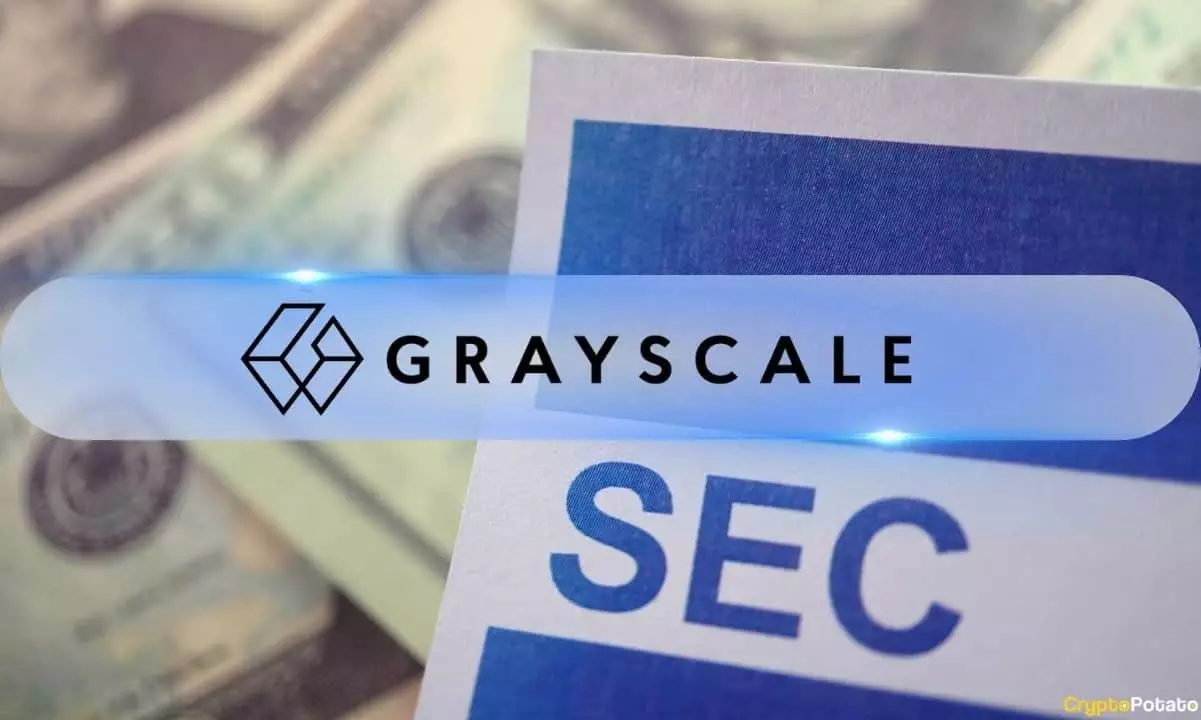Grayscale Investments is making waves in the evolving digital asset ecosystem by filing a request with the U.S. Securities and Exchange Commission (SEC) to transform its mixed-crypto fund into an exchange-traded fund (ETF). Currently operating as over-the-counter products, their Digital Large Cap Fund (GDLC), which manages approximately $524 million in assets, illustrates the firm’s ambition to leap into a more regulated investment vehicle. The fund is predominantly composed of Bitcoin (BTC) and Ethereum (ETH), which collectively represent over 94% of its holdings. This remarkable composition indicates not only the continued dominance of these cryptocurrencies but also Grayscale’s strategic positioning in a competitive market aiming for institutional investment inflows.
Interestingly, Grayscale is not the only organization vying for SEC approval in the burgeoning ETF space. Competitors such as Bitwise and Canary Capital are also navigating their regulatory pathways to introduce spot XRP ETFs. These initiatives spotlight a growing interest in ETFs as potentially transformative instruments for the digital asset realm. Spot ETFs provide investors with the advantage of direct exposure to the underlying asset, a significant selling point in contrast to futures-based ETFs that may not accurately reflect the asset’s immediate trading value. With the SEC’s recent approvals showing a shift in regulatory attitudes, the anticipation surrounding these applications is palpable.
In addition to Grayscale’s ambitions, Canary Capital is setting its sights on launching a spot Litecoin ETF, further illustrating the expanding diversity within the ETF landscape. Their proposal indicates an intention to utilize the CoinDesk Litecoin Price Index to determine the fund’s daily net asset value, a method reflecting established practices in traditional finance. The firm’s assertion of Litecoin’s reliability and historical significance underscores not just confidence within the cryptocurrency ecosystem but also an appeal to institutional investors who may be seeking more stable, well-tested assets.
Navigating the current regulatory climate is crucial for entities aiming to penetrate the ETF market. As firms like Grayscale and Canary Capital forge ahead with their proposals, they recall the SEC’s previous hesitance regarding cryptocurrency funds. However, recent indications suggest a more accommodating regulatory stance, spurred by earlier approvals that have justified ETF formats for Bitcoin and Ethereum. Despite ongoing legal hurdles faced by Ripple’s XRP, confidence from industry leaders like CEO Brad Garlinghouse signals a resilient outlook and a broader industry belief in the long-term viability of these digital assets.
The momentum building behind Grayscale Investments and its competitors reflects a transformative period for digital assets. The move to convert existing funds into ETFs is potentially revolutionary, providing a clearer pathway for traditional institutional investors to participate in the cryptocurrency market while ensuring regulatory compliance. As this exciting chapter in the financial world unfolds, the overarching narrative will be one of adaptation, innovation, and the maturation of an industry that continues to redefine the very notions of investing in today’s digital age. With evolving market structures and increased regulatory clarity, the future of cryptocurrency ETFs looks promising.














